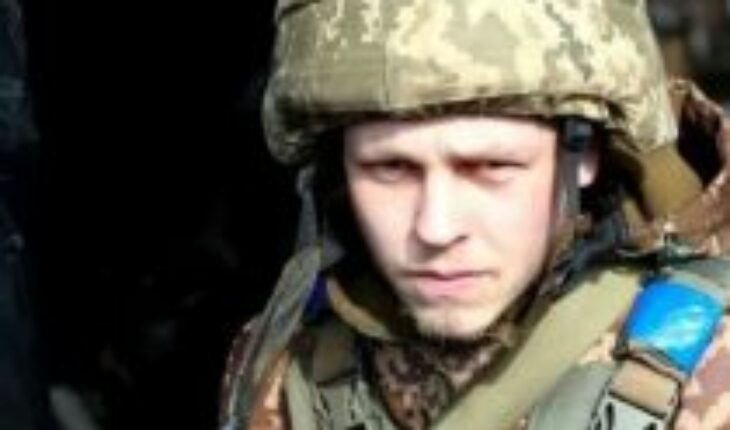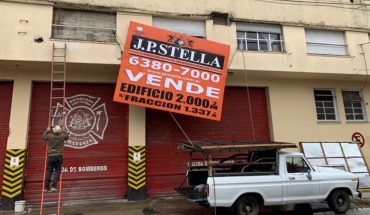The U.S. is also preparing sanctions against members of thes familys of thes elites Russians.
“Russia will not be able to make money from the West and it will not be able to negotiate its debt in our markets or in European markets,” Biden said.
Other countries and international organizations also showed their rejection. The European Union, united Kingdom and Canada responded with plans to sanction banks and elites, which they joined. Australia and Japan (outside the Western bloc), Reuters reported.
Ursula von der Leyen, president of the European Commission, tweeted that Russia’s action “is an explicit violation of international law” and “the territorial integrity of Ukraine.”
While Germany it froze the entry into operation of Nord Stream 2, a major gas pipeline linking the country to Russia.
For her part, the British Foreign Secretary, Liz TrussSaid Wednesday britain will prevent Russia from selling sovereign debt in London.
Like other U.S. allies, London has said more sanctions will be imposed if Russia launches an all-out invasion of its neighbor.
“There will be even tougher sanctions against key oligarchs, on key organizations in Russia, which will limit Russia’s access to financial markets, if there is a large-scale invasion of Ukraine,” Truss said.
Russian armored vehicles in Russia’s Rostov region, near the border with Ukraine. EPA
China, for his part, said he never thought sanctions were the best way to resolve the issues and called for dialogue and consultation, according to a Foreign Ministry spokesman.
Putin has been backed by some allied countries.
One of them has been Nicaragua. The government of Daniel Ortega supported the sending of Russian troops to the regions of Ukraine.
Meanwhile, the governments of Venezuela and Cuba accused NATO countries of wanting to “end” Russia.
Belarus, for its part, assured that Russian troops will remain “indefinitely” on its territory.
Moscow is asking for security guarantees, including the promise that Ukraine will never join NATO.
3. What is known about Russian troops?
The crisis began in November when Russia empehe went on to deploy large numbers of troops in areas near the border with Ukraine.
But on February 15, with more than 150,000 troops deployed, Putin suggested there would be a partial withdrawal of Russian forces.
However, Ukraine and its allies said there was no reduction in the number of Russian troops in the border areas.
Putin claims to be open to the diologist, but does not put it before Russia’s interests. GETTY IMAGES
“They have always deployed forces back and forth,” NATO Secretary General Jens Stoltenberg said a day after Russia’s announcement.
“It’s been a great (movement) up and down, back and forth, all this time; but the trend in recent weeks and months has been a steady increase of Russian capabilities near the borders with Ukraine.”
On Sunday, The Belarusian Defense Ministry said 30,000 Russian soldiers based in the country will remain there, even when they were due to return to their bases in Russia after conducting joint military exercises.
According to U.S. estimates, Russia now has more than 190,000 soldiers in the region, including separatist forces in the Donetsk and Luhansk regions.
4. How did this situation come about?
In 2014, Russia took control of Crimea and supported separatist forces in eastern Ukraine.
The conflict has so far claimed some 14,000 lives.
Rebel groups created people’s republics in Donetsk and Luhansk.
On February 18, the BBC’s Ukrainian service reported that heavy artillery and mortars fired in the region were the heaviest in years.
In their latest report, international monitors from the Organization for Security and Cooperation in Europe reported hundreds of ceasefire violations between February 17 and 18.
The leaders of the two Russian-backed dissident areas announced the evacuation of residents and said Ukraine hasbía intensified bombing and planned an attack.
Denis Pushilin, head of the Donetsk People’s Republic (DNR), announced an evacuation in a video allegedly filmed on Friday. However, a BBC analysis of the video’s metadata showed that it had been recorded before hostilities broke out.
5. Is there any sign of a diplomatic solution?
Neither side rules out a diplomatic solution to a conflict that is escalating with the passing of the days.
Putin said Wednesday that Russia was always open to diplomacy, but put its own national security interests first. and that he would continue to strengthen his army in the face of what he called a difficult international situation.
“Our country is always open to direct and honest dialogue and ready to seek diplomatic solutions to the most complicated problems,” Putin said.
“But I want to repeat that Russia’s interests and the security of our people are unconditional. Therefore, we will continue to strengthen and modernize our army and navy.”
Other actors have tried to go down the path of diplomacy, such as France, whose president, Emmanuel Macron, held a meeting with Putin on February 11.
Germany, moreover, had decided not to send artillery to Ukraine.
Putin claims to be open to the diologist, but does not put it before Russia’s interests. GETTY IMAGES
But even before Russia recognized the independence of Ukraine’s rebel areas, the parties to the crisis were nowhere near a diplomatic settlement.
In early February, Putin reiterated Russia’s demandsPrevent NATO expansion, stop the deployment of weapons near Russia’s borders, and restore the bloc’s military facilities to their 1997 positions when the NATO-Russia agreement was signed.
NATO says it will not limit military deployments to its member states only and refuses to impose restrictions on which countries can join the alliance in the future.
Non-NATO countries have said they do not want Russia to be able to dictate who can join the military alliance, made up mainly of Europe and the US.
On Saturday, Ukraine’s president called for a “clear and feasible deadline” for his country to join the alliance at a security conference in Munich, Germany.
He has not yet received a reply.




